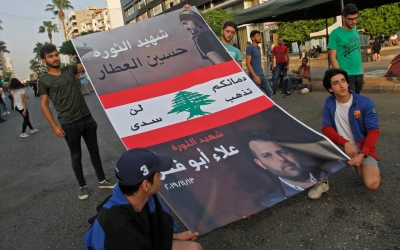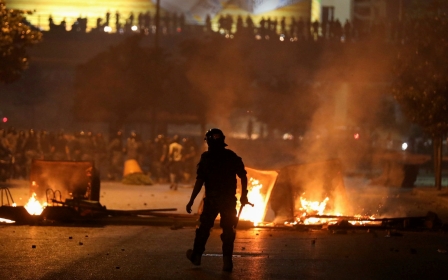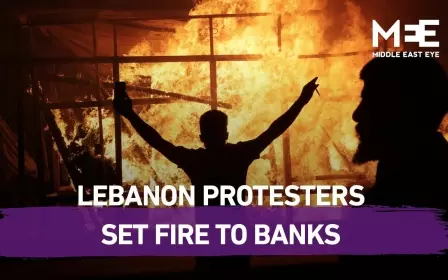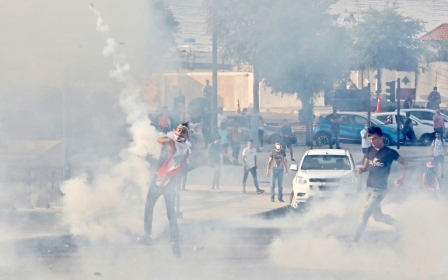Lebanon's deepening economic crisis spurs new protests
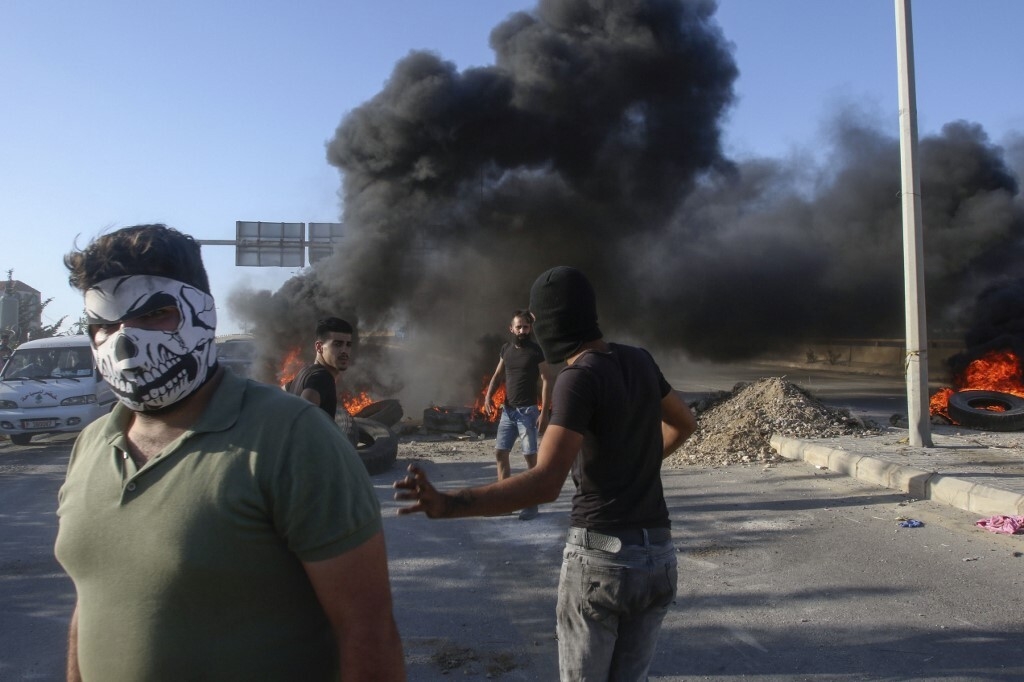
Protesters took to the streets in Lebanon on Saturday, rallying against the surging cost of living and the government's apparent impotence in the face of the worst economic turmoil since the 1975-1990 civil war.
In the northern city of Tripoli, young men scuffled with security forces who fired rubber bullets to disperse crowds.
The stand-off began after young men blocked a highway to prevent a number of trucks carrying produce destined for Syria from passing through, according to the official National News Agency (NNA).
The Lebanese Red Cross said it treated nine people wounded in Tripoli.
The rallies came ahead of a speech by Prime Minister Hassan Diab.
New MEE newsletter: Jerusalem Dispatch
Sign up to get the latest insights and analysis on Israel-Palestine, alongside Turkey Unpacked and other MEE newsletters
"We are here to demand the formation of a new transitional government" and early parliamentary elections, Nehmat Badreddine, an activist and demonstrator told AFP in central Beirut, where protesters gathered, brandishing flags and chanting slogans.
A vast protest movement first erupted in the country in October, denouncing the government's corruption and inefficiency in handling an economic crisis that has since spiralled dramatically.
The rapid devaluation of the Lebanese pound and growing unemployment amid the coronavirus pandemic have triggered a fresh wave of demonstrations.
Lebanese media reported that the exchange rate had tumbled to 6,000 per dollar on the black market early on Friday, compared to the official peg of 1,507 in place since 1997.
After a crisis meeting on Friday, President Michel Aoun announced that the central bank would implement measures from Monday, including "feeding dollars into the market," in a bid to support the Lebanese pound.
Despite the government's pledges, about 200 young men gathered on mopeds in downtown Beirut on Friday night. Some of them defaced shop fronts and set fire to stores in the upscale neighbourhood, which has long been the target of protesters' ire as a symbol of unchecked economic inequality in the country.
Security forces fired tear gas to disperse them, and some of the young men threw back stones and firecrackers. Tension petered out after midnight.
In Tripoli, soldiers fired tear gas late on Friday at demonstrators, who in turn threw stones and Molotov cocktails and damaged the facades of several banks and shops.
Lebanon, one of the most indebted countries in the world with a sovereign debt of more than 170 percent of GDP, went into default in March.
It started talks with the International Monetary Fund last month in a bid to unlock billions of dollars in financial aid. Dialogue is ongoing.
Unemployment has soared to 35 percent nationwide.
The country enforced a lockdown in mid-March to stem the spread of the novel coronavirus, dealing a further blow to businesses.
Middle East Eye delivers independent and unrivalled coverage and analysis of the Middle East, North Africa and beyond. To learn more about republishing this content and the associated fees, please fill out this form. More about MEE can be found here.


